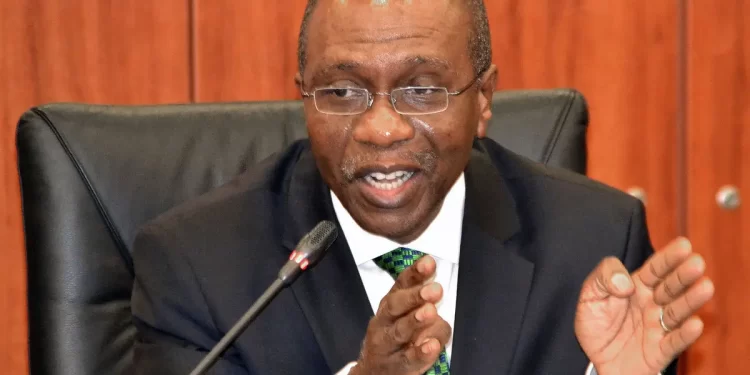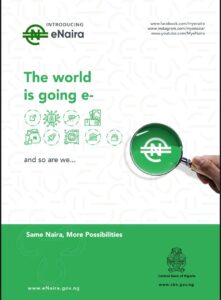As Nigeria’s inflationary rate spikes, the Central Bank of Nigeria (CBN) on Tuesday raised the benchmark interest rate to 15.5 percent, the highest since 2002.
The CBN Governor, Mr. Godwin Emefiele said the interest will continue to rise if inflationary pressure doesn’t abate.
This position by the CBN has sent jitters down the economy as Nigerians fear more hardships. Economic watchers say a rise in interest rates will cause job losses, less creation of new jobs, high cost of doing business ultimately leading to high cost of goods and services. This will lead to more hardship by citizens.
But rising from the Monetary Policy Committee Meeting which held on Tuesday, the CBN governor announced that “members deliberated on the impact of the widening margin between the current policy rate of 14 per cent and the inflation rate of 20.52 per cent. At this Meeting, the option to loosen the policy rate was not considered as this would be gravely detrimental to reining-in inflation.”
He said the Committee thus, “agreed unanimously to raise the policy rate to narrow the negative real interest rate gap and rein-in inflation. The Committee thus voted unanimously to raise the Monetary Policy Rate (MPR) and the Cash Reserve Requirement (CRR). Ten members voted to raise the MPR by 150 basis points, one member by 100 basis points, and another member by 50 basis points. Ten Members voted to increase the CRR by 500 basis points, while two Members voted to increase CRR by 750 basis points.”
He said the “MPC was concerned that within a four-month period, inflation had accelerated aggressively by 280 basis point from 17.71 per cent in May 2022 to 20.52 per cent in August 2022. The Committee was thus, of the view that given the primacy of its price and monetary stability mandate, it was expedient that significant focus must be given to taming inflation.”
Emefiele said at the meeting, “the focus of the MPC was on the aggressive acceleration of inflation globally and how this had begun to retard growth in both Advanced and Emerging Market Economies.”
He said “members noted that though the global economy was progressively weakening due to the various headwinds confronting the recovery.”
“In Nigeria, output growth had been sustained as a result of the combination of development finance interventions by the Bank and fiscal stimulus by the Federal Government. Members noted that in the last 3 years, the CBN has injected over N9 trillion into the economy, in addition to offering 2- year moratorium for 10-year long-term loan facilities. The Committee believe that these interventions have significantly helped engendered growth” the CBN noted.
However, he noted that “in light of the persisting pressures on inflation, the Committee encouraged the Bank maintain a close watch on the inflationary implications of the interventions.”
“The MPC noted the moderate downturn in the equities market, attributing it to a continued outflow of portfolio capital as investors re-assign their portfolios to more attractive US dollar denominated fixed income securities.”
“The Committee, however, also called on the Federal Government to continue to improve the ease of doing business in Nigeria to retain the current patronage of foreign investors through sustained investor confidence in the Nigerian economy” Emefiele said.
The CBN Governor speaking on other sectors of the economy said: “The Committee noted the marginal increase of 0.39 per cent in the level of external reserves to $38.46 billion at end-August 2022 from US$38.31 billion at end-July 2022 despite continued demand pressure. With crude oil price forecast to continue to moderate in the short to medium term, Members urged the Bank not to relent on the various policies put in place to support non-oil exports to shore up external reserves.”
He said “under the Real Sector Facility, the Bank released the sum of N66.99 billion to 12 additional projects in manufacturing and agriculture. Cumulative disbursements under the Real Sector Support Facility (RSSF) currently stood at N2.10 trillion disbursed to 426 projects across the country.”
“Furthermore, under the 100 for 100 Policy on Production and Productivity (PPP), the Bank disbursed the sum of N20.17 billion to 14 projects in healthcare, manufacturing, and services, bringing the cumulative disbursement under the facility to N93.39 billion to 62 projects. In the healthcare sector, N4.00 billion was disbursed to two (2) healthcare projects under the Healthcare Sector Intervention Facility (HSIF), bringing the cumulative disbursement to N130.54 billion for 131 projects, comprising of 32 pharmaceuticals, 60 hospitals and 39 other services. Under the Export Facilitation Initiative (EFI), the Bank funded several commodity projects in the non-oil export segment for value-addition and production to the tune of N3.24 billion, aside the N50.00 billion disbursed through the Nigerian Export Import Bank (NEXIM).”
“In the Micro, Small and Medium Enterprise (MSME) sector, the Bank supported entrepreneurship development with the sum of N39.26 million under the Tertiary Institutions Entrepreneurship Scheme (TIES), bringing the total disbursement under this intervention to N332.43 million. Under the Intervention Facility for the National Gas Expansion Programme (IFNGEP), the Bank disbursed N1.00 billion to support the adoption of Compressed Natural Gas (CNG) as the preferred fuel for transportation and Liquefied Petroleum Gas (LPG) as the preferred cooking fuel” he said.








